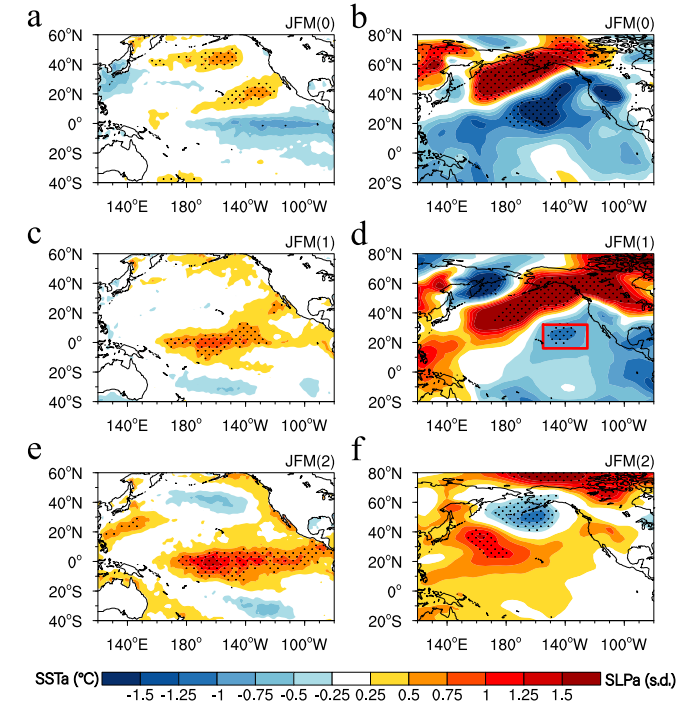Multi-year El Nino events tied to the North Pacific Oscillation

DING Ruiqiang | Nature Communications
Multi-year El Nino events tied to the North Pacific Oscillation
Ruiqiang Ding, Yu‐Heng Tseng, Emanuele Di Lorenzo, Liang Shi, Jianping Li, Jin-Yi Yu, Chunzai Wang, Cheng Sun, Jing-Jia Luo, Kyung‑Ja Ha, Zeng-Zhen Hu & Feifei Li
Nature Communications
Published July 05 2022
https://www.nature.com/articles/s41467-022-31516-9
Abstract
Multi-year El Niño events induce severe and persistent floods and droughts worldwide, with significant socioeconomic impacts, but the causes of their long-lasting behaviors are still not fully understood. Here we present a two-way feedback mechanism between the tropics and extratropics to argue that extratropical atmospheric variability associated with the North Pacific Oscillation (NPO) is a key source of multi-year El Niño events. The NPO during boreal winter can trigger a Central Pacific El Niño during the subsequent winter, which excites atmospheric teleconnections to the extratropics that re-energize the NPO variability, then re-triggers another El Niño event in the following winter, finally resulting in persistent El Niño-like states. Model experiments, with the NPO forcing assimilated to constrain atmospheric circulation, reproduce the observed connection between NPO forcing and the occurrence of multi-year El Niño events. Future projections of Coupled Model Intercomparison Project phases 5 and 6 models demonstrate that with enhanced NPO variability under future anthropogenic forcing, more frequent multi-year El Niño events should be expected. We conclude that properly accounting for the effects of the NPO on the evolution of El Niño events may improve multi-year El Niño prediction and projection.

Fig. 1: Evolutions of SST and SLP anomalies composited for multi-year El Niño events over a 3 yr period derived from HadISST and NCEP1 SLP datasets.

